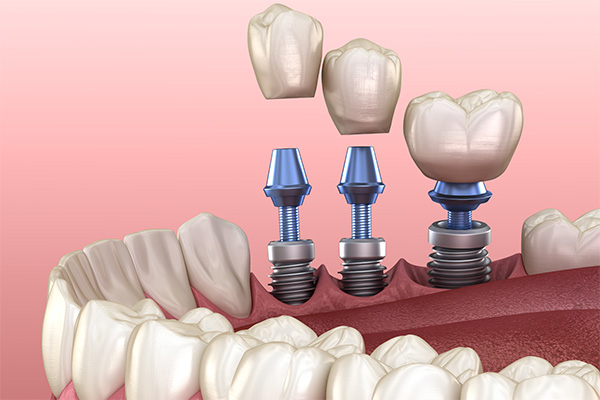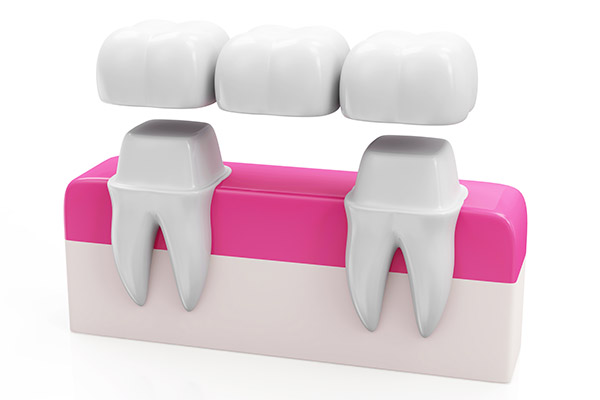 Dental implants are a popular option for replacing missing teeth. While they offer the same aesthetic benefits as other replacement options, there are multiple other benefits provided by dental implants that alternatives fail to deliver.
Dental implants are a popular option for replacing missing teeth. While they offer the same aesthetic benefits as other replacement options, there are multiple other benefits provided by dental implants that alternatives fail to deliver.
Behave like natural teeth
One crucial component of a dental implant is a titanium screw that is placed directly into the jawbone. The screw forms a permanent bond with the surrounding bone, acting similarly to a natural tooth’s root. This provides a stable foundation for the implant, allowing for the natural, unrestrained mouth and jaw usage that some other options for replacing missing teeth may not offer.
In addition to more comfortable and everyday usage, dental implants require the same oral hygiene practices as natural teeth. There are no special flossers, tablets, or other steps required outside of regular oral hygiene practices, making them a low-maintenance and easy option for tooth replacement.
Offer many health benefits
A key concern with missing teeth is that when the gap from a missing tooth is left open for an extended period, it can cause adjacent teeth to shift and result in a lack of stability. Dental implants, as well as some other replacement options, can solve this crucial issue. However, dental implants solve problems that other options do not address and can help prevent problems with additional options for replacing missing teeth.
When the root of a tooth is removed from the jaw bone, the bone doesn’t receive the stimulation needed to signal that the bone is necessary. Often, this causes reabsorption of that section of bone back into the body. The effect is a decreased amount of bone mass and a weakened area of the jaw bone. This can lead to problems for adjacent teeth and even a change in facial structure and physical appearance. Dental implants are the only option for replacing missing teeth surgically placed into the jaw bone, acting similarly to a natural tooth’s root by creating stimulation and preventing this decrease in bone mass.
Gum health can also be a concern when replacing missing teeth. Dental implants allow the gum to grow naturally around the false tooth. This helps prevent food and bacteria from becoming trapped around and below the appliance, preventing additional oral health concerns which can accompany other replacement options.
Another health concern when looking at options for replacing missing teeth is the damage that a replacement will cause to adjacent teeth. Other options may require adjacent teeth to be ground down to have crowns fitted or have false teeth bonded directly to the tooth's natural surface. Dental implants serve as an individual tooth structure, preventing any need for support, and therefore damage to adjacent teeth.
Implants can last a lifetime
Some options for replacing missing teeth are semi-permanent solutions, with future replacement often necessary. Dental implants are a permanent solution that requires minimal maintenance as long as proper oral hygiene is kept, making them an easy solution for missing teeth.
Recent Posts
The bridge is a dental repair that is cemented in place and is used to replace missing teeth. It is done by attaching an artificial tooth definitively to an adjacent tooth, be it natural or artificial. In most cases, crowns are artificial teeth paired with bridges. They are usually made from porcelain or blended resin.…
There are several options for replacing missing teeth so that you can preserve your jawbone and keep your face looking its best. You can discuss with your dentist what option might be best for you based on the type of work required to replace the tooth or teeth and other factors such as how long…
Traditional bridges are a common option for replacing missing teeth. There are many natural as well as unnatural reasons why a person might have lost his teeth. Whatever the reason is, dentists intend to replace the missing teeth with the best procedure. Traditional bridges are one of them.If you have missing teeth, dental bridges can…


